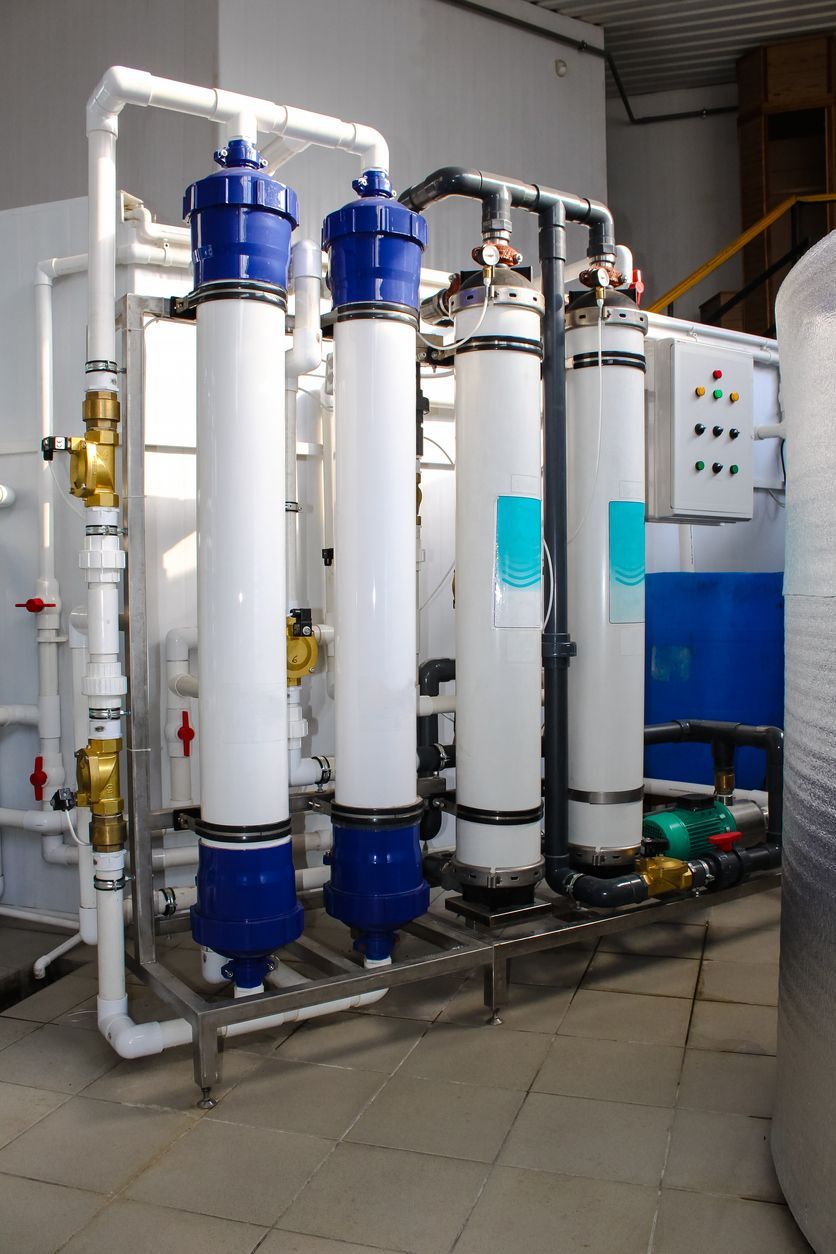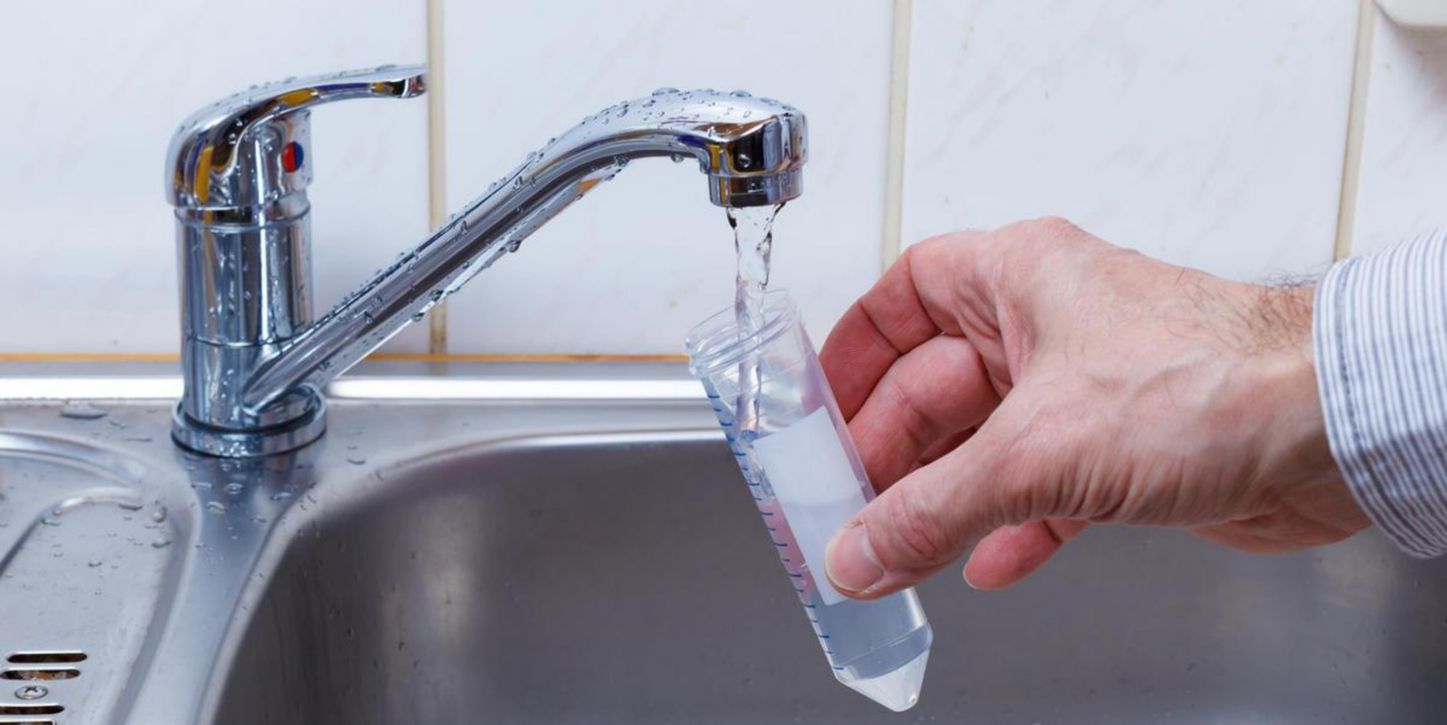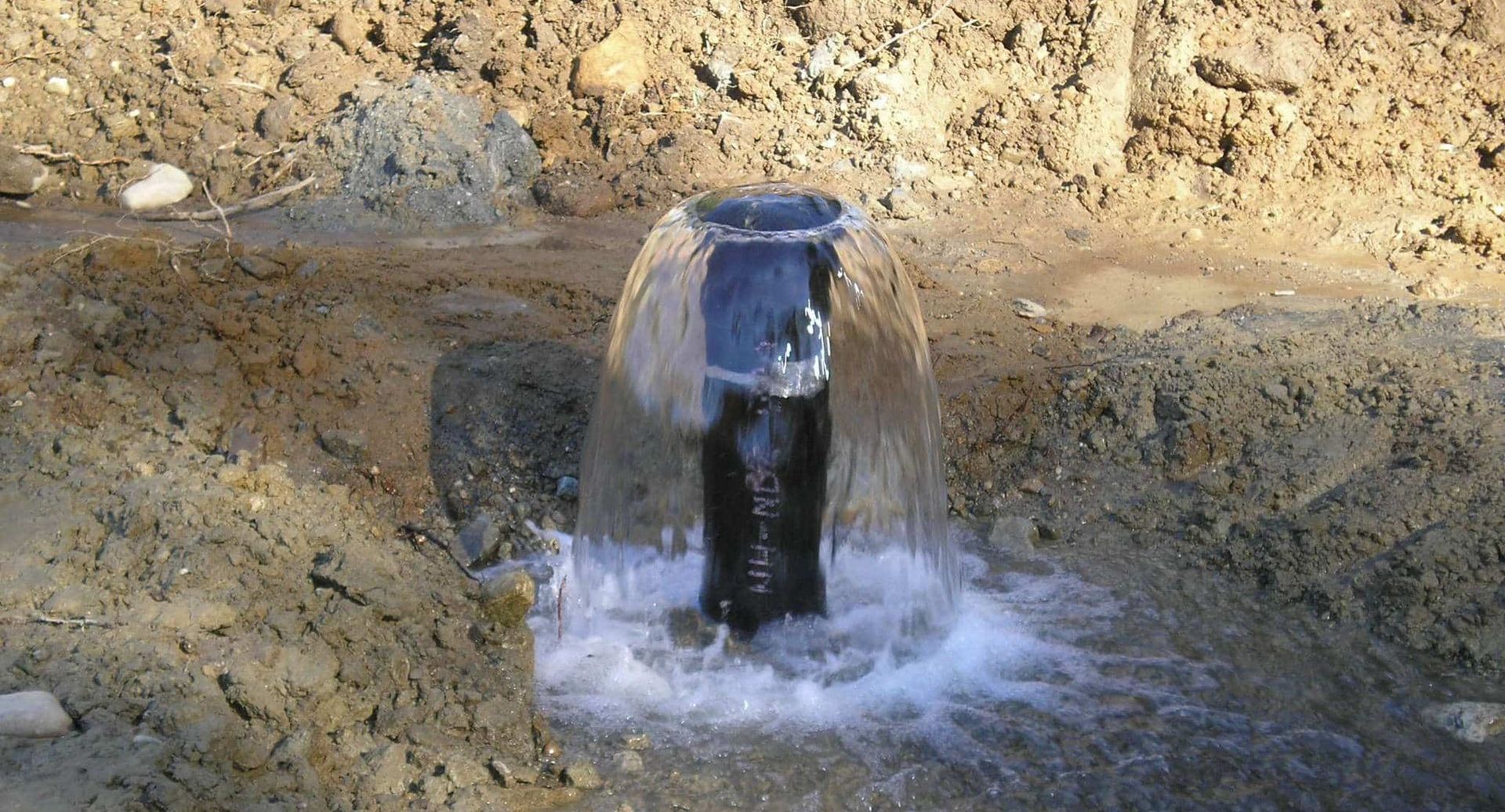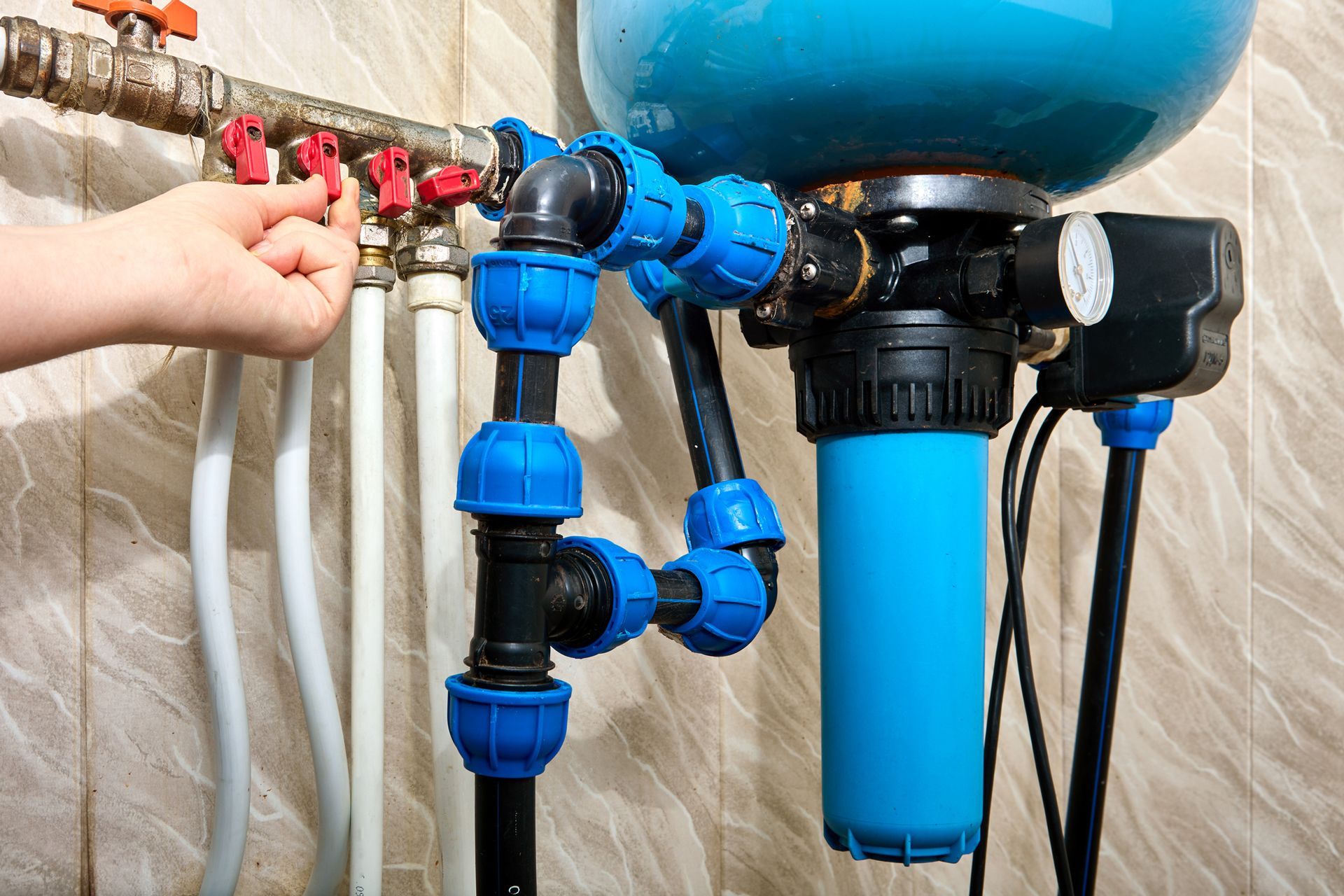Water treatment, water testing, well drilling and hydro-fracking services for VT, NH, and MA.
Do you need emergency well water service?
Expert Picks: The Best Iron Filter for Well Water Solutions Reviewed
Tackling iron in well water requires an effective filter, but the best solution isn’t one-size-fits-all. In this guide, we compare the top iron filters, including the best iron filter for well water, addressing key factors like longevity, efficiency, and cost, to equip you with information for a wise investment. Get ready to enhance your water quality with a filter that suits your home’s specific needs and budget.
Key Takeaways
- Iron filters are essential for removing various forms of iron and other contaminants from well water, with selection dependent on factors like specific contaminants, filter size, flow rate, and efficiency.
- Regular maintenance is critical for iron filtration systems; homeowners should consider filter capacity, oxidation requirements, coupled with water softeners if needed, and the importance of correct maintenance and media replacement to maintain system performance.
- Expert recommendations stress the significance of selecting the appropriate iron filtration system based on water quality needs and usage patterns, with Terminox filters highly recommended for their versatility and maintenance-free operation.
Determining the Top Iron Filters for Your Well Water

Iron filters are instrumental in maintaining water quality in your home. They are designed to remove iron, a common and problematic contaminant in well water. Iron can cause a host of issues such as staining laundry and plumbing fixtures, emitting unpleasant tastes and odors, and supporting the growth of iron bacteria. Selecting the right iron filter is thus crucial and should be based on factors like the specific contaminants present, filter size for the household, flow rate, and overall system efficiency.
Identifying the perfect iron filter can be quite challenging. It requires an accurate water test to assess the severity of contamination, which can often be achieved by working with a professional water treatment company. These professionals can perform precise water tests and provide tailored recommendations for the best iron filtration system.
Homeowners need to stay alert for common misconceptions, like the incorrect promotion of water softeners as iron filters. Water softeners and iron filters serve different purposes, and while a water softener can remove some iron, it is not a substitute for a dedicated iron filter. Avoid using minerals that increase the pH within an iron filter to prevent any potential damage. It is important to be mindful of the impact of these minerals on the filter’s performance.
Evaluating Iron Filter Performance
Evaluation of the iron filter entails examination of its capability to efficiently eliminate water contaminants. Key factors to consider include:
- Iron levels above 0.3 ppm and manganese levels above 0.05 ppm need treatment.
- Flow rate and capacity of the filter to ensure it meets household or facility water usage needs.
- Maintenance and filter media replacement intervals and associated costs to ensure continued performance of the iron filter system.
Depending on the initial pH value of your water, optimal performance of iron filters may require adjusting the water’s pH levels.
Understanding Filter Media Types
In the context of iron filters, the media products employed in iron extraction hold substantial importance. These media products facilitate a unique process of iron removal. Media types such as greensand and manganese dioxide are involved in the oxidation process to facilitate iron removal.
Other oxidative media types, including birm and redox, also play a significant role in the iron removal process from water.
Integrating Iron Filters with Water Softeners

Despite iron filters being proficient in handling ferric iron, they may not always entirely eliminate iron. In such cases, combining iron filters with water softeners can enhance overall water quality. Water softeners are effective in removing lower concentrations of ferrous iron but are not designed to reduce ferric iron, necessitating an iron filtration system.
This combination can provide a comprehensive solution, ensuring the complete removal of both ferric and ferrous iron, thereby removing iron effectively, preventing scale buildup, and providing iron-free water.
The Battle Against Iron: Filtration System Features That Matter
Iron, a formidable opponent, exists in different forms including clear water iron, red water iron, and organic iron. Each form poses a unique set of challenges that require different types of iron filters. High-quality iron filters, such as backwashing filters, cartridge filters, and oxidation filters, are versatile in handling these iron types.
In addition to iron, these filters can effectively remove manganese, sediments, nitrates, nitrites, and arsenic, significantly enhancing the taste and quality of your well water. When selecting an iron filter for well, it’s crucial to consider its type, capacity to remove minerals, compatibility with your well pump’s flow rate, and ease of maintenance.
Iron removal systems often combine oxidation with specialized filtration media for effective treatment. Properly chosen based on accurate identification of water issues, iron filters can:
- Improve water taste
- Improve water clarity
- Reduce staining
- Extend the lifespan of your appliances and plumbing systems.
Importance of Oxidation in Iron Filtration
Oxidation holds a key role in iron filtration system. It transforms soluble ferrous iron into insoluble ferric iron, which is easily captured by the filter media. Factors such as the pH level and the presence of dissolved oxygen in the water can significantly affect the efficiency of the oxidation process. Oxidation-based iron filters are particularly beneficial for eliminating red water iron and treating water with combined concentrations of iron and manganese up to 10 mg/l.
Various oxidizing agents, including chlorine, hydrogen peroxide, and air, are employed in different iron filtration systems to induce the conversion of dissolved iron and manganese into forms that can be readily removed.
Maintenance Needs and Service Calls
To maintain optimal operation of your iron filter, regular maintenance is indispensable. Maintenance routines include cleaning, performing backwashes, and replacing the filter media. When choosing an iron filter, it’s crucial to select one that’s easy to maintain and comes with clear, accessible guidelines for upkeep tasks. Warranty and customer support also play a significant role, as they can influence long-term maintenance costs and servicing needs.
Notably, the use of Pyrolox in combination with ‘zeolite’ can lead to iron adherence to the media, which cannot be removed through regular maintenance, often resulting in costly service calls for replacement.
Iron Filtration Systems: A Comparative Analysis
There are various iron filtration systems available in the market, each designed to handle specific water quality issues. Some of the popular systems include water filtration systems such as:
- Specialized Iron Water Filter Systems for residential and commercial use
- Large-scale Iron Removal Plants
- Resource-efficient Reverse Osmosis Water Systems
- Sophisticated Chemical and Biological Iron Removal Systems
Iron filtration systems are designed to handle a wide range of problems, from sediment and manganese to the removal of iron bacteria, which can produce foul tastes and smells in water. Therefore, well water testing for specific contaminants is essential for selecting an iron filter tailored to those issues. Consulting with a water treatment professional is beneficial in determining the most efficient and effective iron removal system for your home’s particular water conditions.
Pros and Cons of Different Iron Removal Systems

Different iron removal systems come with their advantages and disadvantages, with the optimal choice depending on your unique requirements. Here are some options to consider:
- Birm filtration systems: recommended for water with low to moderate iron levels.
- Greensand and catalytic carbon systems: suitable for higher iron content.
- Aeration filtration systems: especially effective for high dissolved iron waters and can also tackle hydrogen sulfide and manganese issues.
However, the performance of these systems can be affected by factors like pH value, redox potential, and hardness. Thus, proper sizing and selection of the iron filtration system are essential to prevent issues such as inefficient backwashing, which can lead to increased maintenance needs and reduced filtration effectiveness.
Cost vs. Quality: Finding the Balance
In assessing the cost-effectiveness of iron filtration systems, taking into account both the initial and ongoing costs is critical. Higher-priced iron filters often offer improved performance and longer service life, providing better value over time. Budget-friendly options may require more frequent replacements and additional costs for extra filtering mechanisms to achieve desired water quality.
Some iron filters with higher upfront costs may pay off over time by running more efficiently and requiring less maintenance. Therefore, when selecting an iron filter, consider not only the purchase price but also operational and maintenance costs to ensure a cost-effective solution without compromising water quality.
Warning Signs: When to Upgrade Your Iron Filter
Signs that your iron filter is no longer effective include:
- Water discoloration
- Rust stains on fixtures and clothing
- Foul water taste and rotten egg smell
- Sludge buildup in water systems
These signs indicate the presence of iron and possibly other contaminants in your water, suggesting that your filter may need an upgrade or replacement.
Another clear sign that your iron filter needs attention is a reduction in water pressure or increased operational costs of water heaters and softeners. These can be potential indications of iron and manganese accumulation in your water supply, suggesting the need for iron filter evaluation.
Furthermore, here are some signs that indicate you may need to seek a professional assessment of your iron filter:
- Abnormal noises from the system
- Unusual water colors
- A significant reduction in water flow
- Difficulty flushing out oxidized iron during backwash cycles
Tackling Excessive Iron Content
An abundance of iron in your water supply can present considerable obstacles for your iron filter. If you notice staining, unpleasant tastes, or odors, it might be time to upgrade your iron filter. In areas with high iron content, such as Florida, maintenance routines like replacing the injector set every 3 to 6 months are commonly required. The lifespan of filter media in areas with high levels of iron typically ranges from 2 to 10 years, averaging around 5 years before needing replacement.
Adapting your iron filtration system effectively requires considering factors such as well pump flow rate and the presence of specific local contaminants, including iron bacteria or organic iron.
The Role of Regular Water Testing
Frequent water testing is key in preserving the efficiency of your iron filtration system. It allows for the detection of the specific type and level of iron present in your well water, which is essential for the selection of the most appropriate iron filtration system. Consistent testing of your water is also vital for assessing the condition and estimating the effective lifespan of the filter media within your iron filter, allowing for timely maintenance or replacement.
Performing regular comprehensive testing of your well water is essential to verify overall water quality and ensure that your filtration system continues to work correctly.
Maximizing Efficiency: Tips for Maintaining Your Iron Filtration System
The upkeep of your iron filtration system holds equal importance as choosing the appropriate one. Regular replenishment with potassium permanganate is required for regeneration to retain effectiveness in iron removal. ‘Technical’ grade potassium permanganate is recommended over ‘free flow’ to prevent clogging of the valve during regeneration.
The media tank of an iron filtration system should be serviced annually to ensure it remains in good condition. Petroleum-based products should be avoided for lubricating seals and o-rings; silicon-based lubricants are preferred to maintain proper function.
Routine Checks and Balances

Regular inspections and adjustments are vital for the peak performance of your iron filtration system. Here are some steps you can take to optimize performance:
- Periodic inspections and cleaning
- Setting a manual regeneration schedule
- Cleaning or replacing components like o-rings to prevent system blockages and maintain water flow
- Monitoring the filter media within iron filters and possibly replacing it after approximately 8-10 years, or sooner if the system requires more frequent backwashing, indicating that the filter media might be exhausted.
Proper sizing of the iron filtration system is also essential to prevent issues such as inefficient backwashing, which can lead to increased maintenance needs and reduced filtration effectiveness.
When to Call the Professionals
Despite the importance of regular maintenance, there are instances when professional assistance becomes necessary. If you’re experiencing ongoing issues with your iron filter, or if you’re considering a significant system upgrade, it’s best to consult a professional.
A water treatment professional can provide valuable guidance on selecting the iron filter that is best suited to your home’s specific water quality parameters and usage requirements, as well as recommend appropriate water treatment equipment.
Custom Solutions: Tailoring Iron Filters to Your Water Usage and Quality
The process of selecting an iron filter is not universally applicable. It requires careful consideration of your specific needs. The appropriate iron filtration system should be selected based on specific iron levels in the water, overall water usage patterns, and potential co-occurring contaminants. Whole-house iron water filter systems offer a comprehensive solution, treating all water entering the home to protect appliances and plumbing from iron-related damage.
Professional water testing is crucial to detect not only iron but other contaminants such as:
- nitrate
- nitrite
- arsenic
- hydrogen sulfide
This aids in the customization of the filtration system to meet water quality targets.
The effectiveness of a custom iron filtration system hinges on understanding the local water conditions, such as types and levels of contaminants, necessary flow rates, and the availability of maintenance resources.
Residential vs. Commercial Iron Filter Systems
Residential and commercial iron filter systems exhibit notable differences. Commercial iron filters are typically larger in size and have greater capacity and flow rate to manage larger volumes of water and contaminants than residential iron filters.
Choosing the appropriate iron filter system—whether for residential, commercial, or industrial use—is crucial to match the specific water use requirements and ensure the provision of clean drinking water.
Adapting to Unique Water Supply Challenges
Each water supply brings forth distinct challenges, and your chosen iron filter should be adaptable to these conditions. Factors to consider include local water conditions, well pump flow rate, and the presence of specific contaminants. Commercial properties, in particular, often face complex water quality challenges that may require tailored iron removal solutions.
Additionally, iron filters require a water pH of at least 7.5 to function optimally. Selecting the appropriate iron filter for a specific well pump flow rate can be facilitated by personalized assistance through various support channels like online resources, toll-free customer support, live chat, and email.
Our Expert Recommendations for Iron Filtration
When it comes to iron filtration, making the right choice hinges on your water treatment objectives and financial considerations. Experts advise opting for iron filters tailored to your unique water quality requirements.
The longevity of support provided by a company for its iron filtration products speaks volumes about the reliability and worth of their solution.
Top Picks for Optimal Iron Filter Systems
While popular whole-house iron removal water filters boast exceptional water purification capabilities, our research suggests alternative options may better suit your needs. Among these, the Sanitizer Plus and Impression Series Air Filters from Water-Right emerge as standout choices.
Sanitizer Plus: This cutting-edge filtration system is engineered to eliminate a wide array of contaminants, including iron, rust, sulfur, manganese, dirt, turbidity, tastes, odors, and chlorine. What's more, it achieves this without the use of harsh chemicals, salt, or the need for additional substances.
Impression Series Air Filters: Designed for comprehensive filtration performance, these filters effectively remove various pollutants, leaving your water crisp and clean. With their reliable performance and durability, Impression Series Air Filters provide an excellent solution for your iron filtration needs.
Why These Iron Filters Excel
Our findings indicate that the Sanitizer Plus and Impression Series Air Filters offer a superior performance. Additionally, both options provide exceptional value for money, ensuring you get the most out of your investment.
In Conclusion
Selecting the right iron filter is paramount for maintaining pristine, iron-free water in your household or commercial establishment. Your decision should be guided by factors such as water quality, usage patterns, and budget constraints. Regular testing, upkeep, and professional advice can optimize the efficiency of your iron filtration system. Consider exploring alternatives like the Sanitizer Plus and Impression Series Air Filters from Water-Right for superior performance, positive user feedback, and excellent value for money.
For any more questions about which water filter is right for you and your home, contact Wragg Brothers Well Drilling.
Call us at (800) 255-5890 today!

All Rights Reserved | Wragg Brothers Well Drilling

